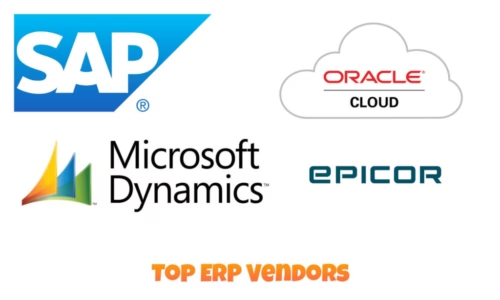See What Our Expert ERP Developers and Designers Can Do

Enterprise
Public Storage
A B2B2C solution with Web, Mobile, and IoT-connected applications that aim to revolutionize the public storage industry.
Details
Enterprise
Telecommunication
Undertaking the design, implementation, and maintenance of an enterprise multi-component telecommunications web app.
Details
Enterprise
Backend update
Our team was tasked to design, develop, and implement a Mule connector as a wrapper over a cloud-based MDM system, acting as a PaaS.
DetailsHow to Hire ERP Developers with DevTeam.Space

Get a Free Strategy Session
Submit your project and schedule a free strategy session. We'll discuss your project and provide you with an estimate or relevant developers' profiles.

Get a Perfect Match
A team of experts is assigned to your project based on your specific needs. Once approved, we can start within 24 to 72 hours.

Track Progress
Our proven agile process ensures consistent delivery of your project in weekly sprints, with regular text updates, budget tracking, and Zoom calls.

Refine Your Team and Scale
Advantages of Hiring Expert ERP Developers with DevTeam.Space
Hire individual senior developers or get a dedicated team of up to 25 ERP developers ready to start within 72 hours.
Expert ERP Developers
Our ERP development process relies on experienced professionals and a structured, agile development process.
Risk-Free Hiring Trial
With over 350 completed projects, we offer a risk-free trial to ensure the perfect fit for your team and project.
99%+ Success Rate
Every project includes a dedicated tech account manager and QA support, ensuring a 99% success rate and consistently high-quality results.
Complimentary Support
A complimentary tech account manager and QA for new features will save you time, money, and enable you to build a top-notch ERP software.
Fair & Transparent Pricing
No hidden fees. Every ERP developer and task is approved by you as a product owner and displayed in invoices.

Expert developers from
the United States, Canada, and Europe
development
teams
Raised by early-stage startups who worked with us.
FAQs About Hiring ERP Developers
1. What is ERP software development?
ERP (Enterprise Resource Planning) software development is the process of building applications that automate and integrate business functions such as accounting, inventory, customer relationship management (CRM), and human resource management. These systems combine different processes into a unified platform so that company data is accessible in real-time across various departments.
ERP software development can involve building custom solutions for specific business needs or adapting pre-existing ERP systems like SAP, Salesforce, Microsoft, or Oracle. ERP developers often work with business stakeholders to create bespoke features and make sure the system aligns with organizational goals.
While building a custom ERP system often requires a higher upfront investment, it can position an organization for long-term success. A well-designed, tailored ERP platform not only improves efficiency but can also drive the next phase of business growth by aligning technology with unique processes and strategic objectives.
2. How much does it cost to develop an ERP system?
ERP development costs vary based on the system’s complexity, scope, and the level of customization required. For example, a small-scale ERP solution implementing a single off-the-shelf module with minimal customization can start at around $18,000.
On the other hand, a full-scale enterprise-wide custom ERP system can easily reach $300,000 or more, which also significantly requires higher investment in time and development expertise.
Here’s a rough breakdown of the costs:
Small business ERP with limited modules
- Complexity: Simple
- Cost Range: $18,000–$50,000
- Timeline: 3–6 months
Mid-sized ERP with multiple integrated modules (finance, supply chain, CRM)
- Complexity: Medium
- Cost Range: $50,000–$150,000
- Timeline: 6–12 months
Large-scale custom ERP with deep integrations and advanced features
- Complexity: High
- Cost Range: $150,000–$300,000+
- Timeline: 12+ months
Complex ERP projects often require more senior developers, in-depth testing, longer training periods, and continuous post-launch support. When budgeting, always align your cost expectations with the value the ERP system will deliver to your organization’s efficiency, scalability, and long-term growth.
3. What is the cost of hiring an ERP developer?
The overall salary range for ERP developers in the United States generally falls between $92,000 and $151,000 per year. However, the cost of hiring an ERP developer depends on various factors such as the developer’s experience level, location, and the complexity of the ERP system being developed.
Junior ERP developers may cost less, but they might not have the in-depth experience necessary for complex implementations. Senior ERP developers, particularly those with expertise in systems like SAP, Oracle, or Microsoft Dynamics, tend to command higher salaries due to their specialized knowledge.
Geographic location also plays a role. Developers based in North America or Europe generally have higher rates than those in Eastern Europe or Asia. Additionally, the cost will depend on whether you’re hiring a full-time developer, a contractor, or working with a development agency.
If you hire DevTeam.Space, you’ll get access to senior ERP developers based in Europe at competitive rates, managed by our US-based team. You can choose hourly, weekly, or monthly engagements for part-time or full-time work, with flexible payment schedules. We’ll also provide full support throughout the project and a no-risk trial, if your developer isn’t the right fit, we’ll replace them at no extra cost.
4. What are the key skills required for ERP developers?
ERP developers need a wide range of technical, business, and interpersonal skills.
Technically, they should be proficient in languages such as Java, Python, or PHP, as well as in ERP-specific solutions like SAP, Oracle, and Microsoft Dynamics. They must also be skilled in database management, data integration, and have a deep understanding of business processes like supply chain management (SCM), CRM, and finance.
Experience with processes like cloud computing, mobile applications, and AI-powered analytics is also essential. Moreover, an ERP developer's skills should include communication, problem-solving, and teamwork, especially when working with various stakeholders across the business.
At DevTeam.Space, our ERP developers are pre-vetted and trained, ensuring they have the technical expertise, interpersonal skills, and the business understanding to deliver high-quality ERP solutions.
5. How do I assess an ERP developer's hands-on skills during an interview?
When interviewing ERP developers, it’s important to verify their experience in building ERP systems. Start by discussing specific projects they’ve worked on, particularly focusing on areas like:
- ERP system customization: For example, adapting SAP or Microsoft Dynamics modules to meet a company’s unique workflows.
- Integration with existing software: Such as connecting an ERP system with CRM tools like Salesforce or accounting software like QuickBooks.
- Handling sensitive business data: Implementing proper data access controls, encryption, and compliance with regulations like GDPR.
You can also ask scenario-based questions that require candidates to explain how they would handle typical ERP challenges, for instance, migrating large datasets from legacy systems, integrating multiple modules across departments, or optimizing system performance while maintaining security.
Additionally, consider technical tests or coding challenges that simulate common ERP problems, such as writing scripts to automate workflows, troubleshooting integration errors, or developing custom reports. These exercises help you evaluate both their practical skills and problem-solving ability.
6. What are the benefits of custom ERP systems versus pre-built solutions?
Custom ERP systems provide significant advantages for businesses with unique workflows, processes, or compliance requirements. Unlike pre-built, off-the-shelf solutions that offer generic functionalities, custom ERP systems are designed to address the unique needs of your business. These systems can be easily integrated with your existing tools and databases, ensuring a seamless data flow across departments.
Moreover, custom ERP solutions allow your business to scale as you grow. They offer more flexibility in adding or modifying modules as your company's needs change.
Custom ERP solutions typically require higher upfront investment and longer development time. However, they offer long-term cost savings and operational benefits.
7. How long does it take to develop an ERP system?
Small and mid-sized businesses usually roll out ERP systems within 3 to 9 months, while larger organizations often take between 6 and 18 months. Multinational systems can stretch for several years when involving extensive customization.
However, the timeline for developing an ERP system depends on several factors, including:
- Complexity of the business processes involved
- Number of modules to be integrated
- Level of customization required
Development time also depends on the chosen development methodology. Agile development processes, which include iterative sprints and regular feedback, can help shorten the timeline and allow for more flexibility. A clear understanding of project scope and stakeholder expectations helps in estimating development time.
8. What industries do ERP developers typically work in?
ERP developers serve a wide range of industries, including manufacturing, healthcare, insurance, retail, and real estate. In each industry, ERP systems are tailored to meet the specific needs and challenges of the business.
For example, in manufacturing, ERP solutions are used for managing supply chains, production schedules, and inventory. Similarly, healthcare ERPs are essential for managing patient records, appointments, and regulatory compliance.
At DevTeam.Space, our ERP developers have experience across multiple industries, allowing us to quickly adapt solutions to your business processes and deliver systems that fit your unique operational requirements.
9. Can an ERP system integrate with existing software?
Yes, ERP systems are designed to integrate with existing software applications used by businesses, such as CRM tools, financial management systems, and human resource management software.
Integration allows businesses to consolidate data from multiple systems into one central platform, improving data accuracy, reducing redundancy, and increasing efficiency.
ERP integration is an important part of modern ERP implementations, as it maintains smooth business operations across different departments and systems.
10. How Can I Hire ERP Developers?
There are several ways to hire ERP developers quickly, whether as freelancers, in-house staff, or through a dedicated team. To choose the right approach, it helps to follow a clear process that ensures developers match your business needs and project goals.
1. Define Your ERP Requirements
Begin by understanding exactly what you need from your enterprise resource planning system. Decide which modules are required, such as accounting, supply chain management, customer relationship management, or human resource management, and outline your business processes in detail.
You should also specify whether you’re building a new ERP system from scratch, upgrading an existing ERP system, or working on ERP customization for specific workflows.
A clear functional specification helps ERP developers assess feasibility, choose the right tech stack, and estimate timelines and budgets.
2. Decide on the Type of ERP Developers You Need
The right hiring approach depends on the scale and complexity of your project:
- Freelance ERP developers: Lower initial cost and flexible availability, but may have limited oversight and long-term commitment.
- Dedicated ERP developers from a trusted company: Fully vetted, reliable, and experienced in complex ERP projects, offering stronger long-term value.
- In-house ERP development team: Full control and deep integration into your company culture, but higher costs and slower to scale.
For large-scale or highly customized ERP development, a dedicated or agency-based team is generally the most efficient choice.
3. Look for Relevant ERP Expertise
Whether hiring an individual developer or a team, prioritize proven experience in custom ERP software development and familiarity with ERP platforms such as SAP, Oracle NetSuite, Microsoft Dynamics, or Salesforce. The developers should have skills in ERP migration solutions, integration, and API development to connect with existing systems.
Review their portfolio and ask for references or case studies. Look for success in your specific industry, whether it’s manufacturing, retail, healthcare, finance, or construction.
4. Consider a Discovery Call
Before signing a contract, arrange a discovery call to confirm that the developers understand your business needs, data management requirements, and ERP system goals.
This also helps assess communication skills, problem-solving ability, and whether they can explain technical concepts clearly to non-technical stakeholders.
5. Onboard Your ERP Developers Properly
Once you’ve chosen your developers, make onboarding smooth and structured:
- Provide project documentation and access to relevant development environments.
- Set up accounts for any tools, cloud platforms, or systems they will use.
- Clearly define roles, responsibilities, and deliverables.
- Establish communication channels and progress checkpoints to keep the project on track.
A well-planned onboarding process guarantees that developers integrate quickly and align with your ERP software development process from day one.
11. How can I ensure the quality of my ERP software development?
Ensuring the quality of your ERP development involves a combination of best practices in software development, such as regular code reviews, unit testing, integration testing, and user acceptance testing (UAT).
Following industry standards and using experienced developers means that the ERP system will be built to meet both functional and non-functional requirements. Working closely with the ERP development team and setting clear project goals and milestones also helps to maintain high-quality standards throughout the ERP project lifecycle.
At DevTeam.Space, our developers are pre-vetted and trained, and we work closely with you to set clear goals and milestones, helping maintain quality throughout the project.
Featured DevTeam.Space ERP Articles
Discover expert insights on ERP development and the latest innovations in ERP technology, designed to help you make informed decisions. All content is written by humans for humans.


